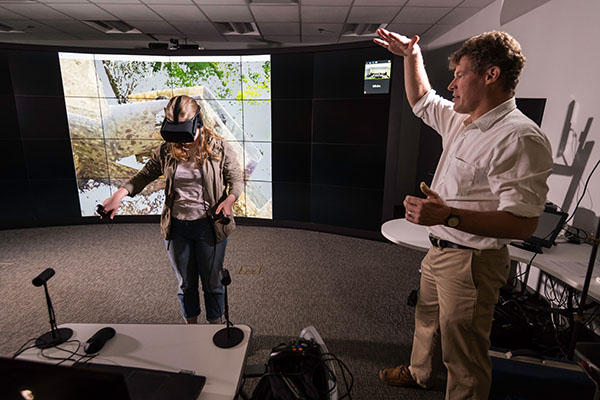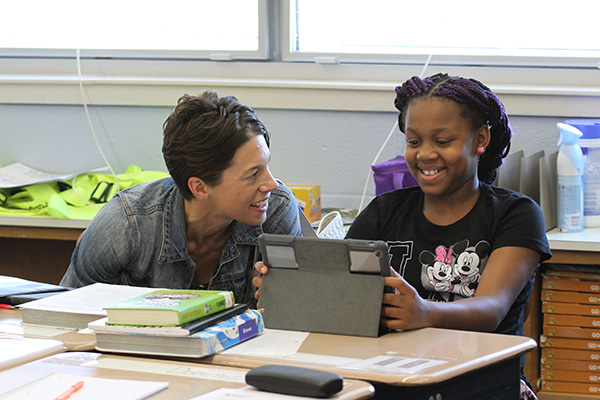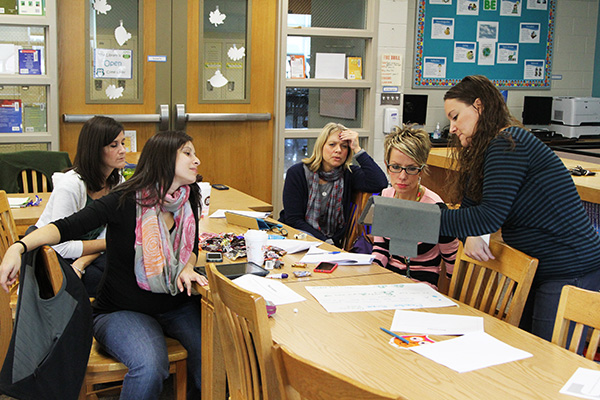The Challenge
Consistent with the University of Rochester’s mission to “make the world ever better”, our challenge at the LiDA center is to further and enrich the use of digital technologies to improve outcomes for all learners … in both traditional and non-traditional “educational” settings.
To meet this challenge, the LiDA center has defined the following mission and vision statements:
| MISSION | VISION |
| Harnessing the power of digital technologies for education | Bridge research and practice on educational applications of digital technologies to increase access, create more powerful learning experiences, and develop new educational models – thus helping to level the education playing field. |
The RICH strategy
The RICH strategy will shape our efforts as we work toward achieving our mission and vision. The RICH strategy is a combination of:
| Research | Conduct and disseminate research to illuminate and expand valuable uses of technology in education |
| Innovation | Support educational innovations that take full advantage of digital technologies |
| Catalyst | Serve as a catalyst for networking and collaboration on digitally-rich education |
| High-quality preparation | Provide educators with high-quality learning opportunities to capitalize on digital technologies |
Our intent is to develop nationally-applicable models for learning in the digital age, with an initial focus on work in the Rochester Region.

Focus Areas
The LiDA Center will initially focus on the following areas – although more will be added in response to faculty interest and future funding opportunities:
K-12 Education:
Using technology to create new opportunities for all K-12 students to succeed
Higher Education:
Leveraging online and digitally-rich learning in higher education to increase student access and learning opportunities
Informal Settings:
Learning from digitally-rich practices used in informal settings
Professional and Lifelong Learning:
Supporting professionals’ in-service and life-long learning through digital technologies.
Examples of “Digitally-rich Learning”
What can digital technologies do for education and human development? Online education may first come to mind, but many other applications of these technologies can impact learning and development as it takes place in K-12 and higher education, as well as a variety of non-traditional settings.

Access to educational resources anytime, anywhere, for anyone: Whether they are enrolled in a face-to-face or online course, K-12 and college students today can use their laptops or smart phones to access an amazing number of multi-media materials, seek help from their instructors or classmates, and even directly contact experts in the field. This increased access can also level the educational playing field for learners who before were prevented access because of cost, geographical location, learning style, or disability.
Technology-enhanced learning experiences: Today’s technologies allow for experiences not possible before. For example, surgeons can now be trained by performing operations on 3D printings of real patients’ organs, science students can use virtual or augmented reality (VR/AR) to engage in experiments too costly or too dangerous to perform in real life, and older adults or individuals with a disability may be able to participate in activities previously precluded to them.
New educational models for life-long learning: In our rapidly changing society, everyone will need to continue to learn new skills after graduation. MOOCs (Massive Open Online Courses), webinars, YouTube videos, OER (Open Educational Resources), and myriad other digital content, provide new options to keep up with new developments – and may possibly even suggest alternatives to traditional formal education in the future.
We believe that individual educators, as well as educational institutions, have barely begun to take advantage of these new opportunities offered by digital technologies, and much more can be done. While applications of digital technologies to education are continuing to be developed, and there are a number of national organizations focusing on this arena (such as EDUCAUSE and the Online Learning Consortium, just to mention a few), there is still a growing need to support individual educators as well as educational organizations to make use of these developments in their specific contexts.
Capitalizing on Warner’s expertise in bridging research and practice, as well as initiatives developed as part of the 2013 Warner Strategic plan around online teaching and learning, the LiDA Center focuses on forging and studying new solutions to enhance learning and development by leveraging digital technologies, while at the same time developing new models and insights based on these experiences that will make significant contributions to the field.

